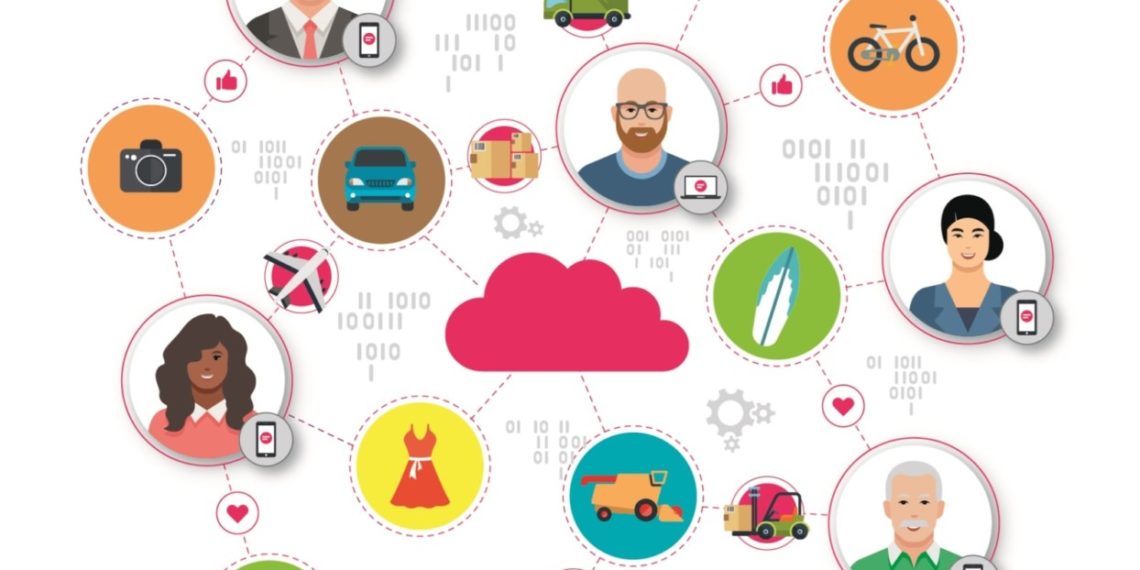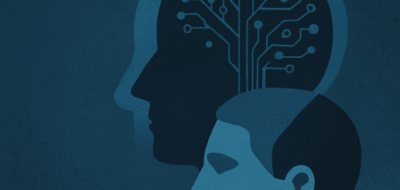My article in BrandsIT dated 15thof December 2018.
Critics of modern economics, sociologists, advocates of cryptocurrencies (Bitcoin, Ethereum, to mention only those with the largest market capitalization), and even the founders of corporations that champion new technologies, all agree: The age we live in is one of the collapse of traditional economics.
Given that, doesn’t it make sense thatthe technological revolution that has brought us smartphones and peer-to-peer file sharing systems (creating, in the process, new ways to use intellectual property and pursue human relationships) will revolutionize our approach to ownership, profit, and other lynchpins of traditional economics?
Exchanging things, “I” and “Thou” come closer
Allow me to invoke two late figures, one of whom had nothing to do with economics, while the other has for years espoused views that were dismissed as eccentric.
The first is anthropologist Bronisław Malinowski, an outstanding pre-war Polish cultural researcher known for the monumental 1929 work “Życie seksualne dzikich” (“The Sexual Life of Savages”), the second book in a trilogy about the inhabitants of the Trobriand Islands.
In the trilogy’s first book, 1922’s “Argonauci Zachodniego Pacyfiku” (“The Argonauts of the Western Pacific”), Malinowski describes a Kula ritual in which members of Papua, New Guinea tribe travels miles to exchange treasured spiritual objects that custom requires they pass on, and rather soon. The ritual has a significant result: It creates strong interpersonal bonds based on mutual respect. And that, in turn, created a whole new culture centered around the exchange of goods.
The other interesting figure is the American futurist, designer, and inventor Jacques Fresco, who died in 2017 at the age of 101. In the 1960s, he developed “Project Americana,” a scheme in which “sensitive machines” were to cool and clean cities in response to environmental pollution. He advocated for communication between cars to prevent accidents. He devoted himself to promoting economics based on the principle of free and universal access to natural resources. He claimed that at this stage of civilizational advancement, we had everything we needed (natural resources and computer technology) to lay the groundwork for a new economy.
He was a critic of the way the world’s resources were controlled, and saw their monopolization by the few as causing “a constant repeat of the same series of events: war, poverty, recession, boom, bust, and war again.”
Fresco’s solution was to create a system in which nations would declare the world’s resources – clean air and water, arable land, education, health care, energy, and food – a common heritage. All people would have access this heritage via computers which, Fresco noted, “had no ambitions,” and therefore were trustworthy.
A niche growing bigger
The echoes of both Malinowski and Fresco can be seen in today’s most vigorous and promising economic trends. The exchange of resources, the focus on resources availability, an emphasis on building bonds between economic actors, and achieving collective satisfaction are all part of what we refer to today as the “sharing economy.”
That’s no longer Utopian in the sense of “the non-exiting place.” We have come to a point where rich, recognizable brands, such as Airbnb, Uber, and Veturilo, to name just a few, are growing and maintaining a loyal customer base. Although still a niche, the “shared economy” trend is beginning to attract a lot of interest from consumers, investors, and innovators.
Over a quarter of U.S. adult internet users (56.5 million people) used a “sharing economy” service in 2017, according to eMarket.com. In India, the sharing economy is predicted to grow to $335 billion by 2025. And those levels of adoption don’t include such websites as Pinterest and eBay (with its 171 million buyers as of September 2017) which allow people to connect and acquire products without traditional retailers. And while the phenomenon continues to be a niche, it’s not going away, it’s growing, and we can only speculate on how it’s transforming consumer habits.
Trust and communication: Twin pillars in the new economy
Today, the sharing economy is driven by serious money and people ambitious to create something new.
Some of the organizations they create pursue profits and margins (Uber), others seek to stimulate local micro-businesses (Etsy). There are also lesser-known efforts rooted in local markets, such as the UK’s Streetbank, a community that exchanges household appliances and, in so doing, brings people together.
All these initiatives share common characteristics and use similar tools. Together, they make up a fascinating market segment driven by access to the latest technologies: the internet, advanced analytics, and social networks.
Their other common feature is a philosophy and value system based on the realization that every person has resources that can be shared with others. Instead of exploiting goods, people use their private resources, their “spare capacities” (leisure time, vacant housing space, unused cars) to create value – for themselves, certainly, but also for others. In so doing, competition is replaced with trust.
In this new economy, trust has become the key concept, a differentiator, and an economic marker. The key tool are the technologies that allow all participants in the business process to communicate with one another: the internet, smart phones, p2p file sharing, and freeware.
And it would not exist without the explosion of social networking sites on which people connect instantly, creating a massive web of contacts, interests and goals.
Finally, none of this would be possible without the basic tool: the application itself. We may not remember that the rise of consumer software, defined as everyday software, only happened in the last decade.
See the full article here (in Polish).
YouTube: The rise of sharing economy
Related articles:
– Will a basic income guarantee be necessary when machines take our jobs?
– Only God can count that fast – the world of quantum computing
– The invisible web that surrounds us, i.e. the Internet of Things
– Blockchain – the Holy Grail of the financial system?
– Fall of the hierarchy. Who really rules in your company?










Avicenna
Interesting results. If we assume all 173K unemployed get the stipend, annual cost is around $1.2 bil (without admin cost). Assuming all 173K added 6 days of work per year as per the article, and further assuming their earnings will be at the lower end (low skill), and using Finland’s own numbers (around $2000 monthly wage), that adds $104 mil to GNP. Quite a deficit, isn’t it? Now do the calculations for every man and woman in the US.. Basic income is a wonderful idea, until one runs the numbers. Maybe this is a reason why Finland didn’t continue?
Check Batin
I don’t think they’re getting the equivalent of basic income from bailed out investments, and I think that the vast majority of TARP benefits, beyond the roughly 1.5% GDP years in foregone interest the government gave up (really about 0.1%-0.5% because the United States congress isn’t about to authorize a sovereign wealth fund at any point, so they’re not getting 7% on their money), went to the working and middle class. That we didn’t use the crisis to challenge more fully the rentiers in our economy is cause for upset, but TARP was far more beneficial to the working class and far less of a giveaway to the rentiers than the EITC is.
And another thing, SNAP disbursements and Unemployment benefits went up dramatically, as they should in a recession. Main Street got a bailout appropriate to the recession, but not appropriate to the neoliberal era of wage suppression. That remains an uncut knot.
But again, you’re changing the argument. Have the patience to get to the fucking comments, would you?
Check Batin
Sorry for my language 🙁
TonyHor
It’s time to shred the societal contract with these malthusian tech oligopolies who want to control and brainwash society with climate indoctrination.
John Accural
In today’s global economy, the humanities are essential since we deal with a wide variety of cultures, political systems, economies and religions. In business we always said: Forewarned is forearmed.
TomK
With iTunes and the App Store, platform businesses started to take over, where value is created by facilitating exchange between interdependent groups, usually consumers and producers. And since Uber & AirBnB, exponential organization models are spreading, where new organizational techniques & technologies are used to create output from owned assets 10x larger compared to peers.
Jack666
The average lifespan of S&P 500 companies has dropped from 61 to just 18 years in past 60 years. Nowadays, 50% of global annual company revenues come from products launched within just the past 3 years.
Norbert Biedrzycki
According to McKinsey Global Institute, Europe could see growth up to 20% on average by 2030, if it scales up efforts in digital and AI
Acula
Right. Indeed. In the expanding world of the Internet of Things, entrepreneurs would be better off to remember two old adages: Resistance is futile, and if you can’t beat them join them. No matter its predicted benefit, the notion of change is hard to accept because people are settled into comfort zones and face resistance based on the status quo. Profiting from your information might be the best selling point. After all, everyone else will benefit from your data. Why not you?
TomK
Socialism 🙂
AndrewJo
Vote for utopia
CaffD
Good but not comprehensive
PiotrPawlow
Couldn’t agree more on the basic principle, but technology makes the wheel turning at the very end …
Zidan78
The Eagle and The Dragon in an economic grip in the air.
The boom for everything short-term, the demand for smart production and for wise financial moves.
Interesting budgeting!
Happy New Year! -:)
Check Batin
Not true. This leads us to Uber-monopoly
JacekPlacek5
The sharing economy, as many have noted, has generated enormous wealth. Because the definition of the sharing economy is ambiguous, quantitative analyses of its value are limited. A PricewaterhouseCoopers study published in 2015 predicts the sharing economy could reach $335 billion in spending by 2025 fueled by five primary components: travel, car-sharing, finance, staffing and streaming.
Norbert Biedrzycki
Real reasons for technology disruptions. So true 🙂
TonyHor
Not only poor customer service – prices did it’s job
Jack666
With iTunes and the App Store, platform businesses started to take over, where value is created by facilitating exchange between interdependent groups, usually consumers and producers. And since Uber & AirBnB, exponential organization models are spreading, where new organizational techniques & technologies are used to create output from owned assets 10x larger compared to peers.
Mac McFisher
Great cases. Client centricity is a must
John Accural
Another great read
Norbert Biedrzycki
Thank you
TommyG
So… when you hear bitcoin what you might think of first is a ”new kind of coin”. But IMO a better way to view it is a new kind of Uber.
https://medium.com/future-of-currency/explain-bitcoin-like-im-five-73b4257ac833
DCzaj
WEFORUM:
So what is the sharing economy? And how should we distinguish among the various “new economy” models in the headlines? Here is a summary list that will clarify the confusion and provide guidance to companies, policymakers, individuals and investors alike:
Sharing economy: focus on the sharing of underutilised assets, monetised or not, in ways that improve efficiency, sustainability and community
Collaborative economy: focus on collaborative forms of consumption, production, finance and learning (“collaborative consumption” is closest to the orthodox sharing economy definition)
On-demand economy: focus on “on-demand” (i.e. immediate and access-based) provision of goods and services
Gig economy: focus on workforce participation and income generation via “gigs”, single projects or tasks for which a worker is hired (limited overlap with skill sharing)
Freelance economy: focus on workforce participation and income generation by freelancers, also known as independent workers and self-employed (limited overlap with skill sharing; freelance engagements are often longer and/or deeper than gigs)
Peer economy: focus on peer-to-peer (P2P) networks in the creation of products, delivery of services, funding and more
Access economy: focus on “access over ownership” (overlaps with sharing, though sharing is by no means requisite)
Crowd economy: focus on economic models powered by “the crowd”, including but not limited to crowdsourcing and crowdfunding
Digital economy: focus on anything powered by digital technologies
Platform economy: focus on anything powered by tech-centric platforms
DDonovan
It took thousands of mathematically trained workers years just to roll up census numbers in the early 1900s. This is work a simple spreadsheet program can do in less than a second, being operated by just one person. Technology has been continually replacing certain areas of human labor and making it faster and cheaper, but normally only for processes within businesses.
TonyHor
Nice, structured selection
Norbert Biedrzycki
If Europe develops and diffuses AI according to its current assets and digital position, it could add some €2.7 trillion, or 20 percent, to its combined economy output, resulting in 1.4 percent compound annual growth through 2030
Zoeba Jones
I agree that being customer centric is the key to any successful business, but I totally disagree with the reasons that killed those businesses. Amazon isn’t killing other retailers only because of customer service. There are plenty of retailers that do outstanding customer service that struggle without an Omnichannel strategy. Amazon is a powerful marketplace. Similar arguement could be used for Airbnb and Uber. It’s a simplistic way of saying something obvious.
SimonMcD
I don’t know if we’ll make all that much progress in 2019, but we’ll see. The IoT and smart contracts in many ways go hand in hand. But what we really need is an open source solution.
SimonMcD
There is NO service in the service economy. Take for example SHOES. Remember going to your local shoe store? The salesman knew you. He knew about your high arch, your special needs, etc. He took the time to fit you. He knew his product line superbly well. I defy anyone to tell me that such an experience is available today – even though we love Zappos and its competitors.
Same thing with electronics. How many morons are there at Best Buy who know absolutely nothing – I mean NOTHING – about the products they are selling.
What destroyed retail in this country is pricing pressure, pure and simple. Technology has facilitated this, because it is possible to leverage buying power through e-commerce and pass that to the consumer. It is economic theory proven out – but it has done a lot of damage to a lot of communities and put a lot of people who gave that special personal touch out of work.
I love Amazon. Amazing to find anything and everything in a single repository and to buy it expeditiously. But oh what a price we’ve paid. This has nothing to do with “customer centric”. There is NOTHING “customer centric” about Amazon. Technology crushed that-pure and simple.
JacekPlacek5
Certainly, the modern concept of the sharing economy is computer-mediated. A host of enabling technologies, including open data, the widespread adoption of mobile phones and the rise of social media platforms that connect people and reinforce the value of peer-based endorsements, have enabled the massive scaling of peer-to-peer-based transactions.